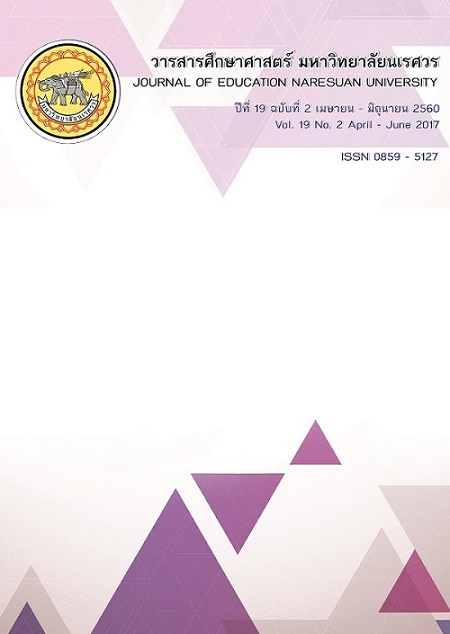กระบวนทัศน์ใหม่ทางการศึกษากับการพัฒนาครูไทยในยุคดิจิตอล
Main Article Content
Abstract
ท่ามกลางความเปลี่ยนแปลงของโลก คุณภาพคน หรือทุนมนุษย์มีความสำคัญมากในศตวรรษที่ 21
การเตรียมความพร้อมของคนไทยในอนาคต จึงเป็นหน้าที่ของระบบการศึกษาและครูที่มีคุณภาพ คุณภาพครูจึงเป็นปัจจัยสำคัญในการส่งเสริมการเรียนรู้ของผู้เรียน และการเปลี่ยนแปลงกระบวนทัศน์ของครูต้องเกิดขึ้นไปพร้อมกับการเปลี่ยนแปลงยุคสมัย เพื่อผลิตคนที่มีคุณภาพ มีความสามารถในการแข่งขัน ตรงตามความต้องการของประเทศ กระบวนทัศน์ใหม่ทางการศึกษา คือแบบแผน และกรอบโครงสร้างที่กำหนดรูปแบบ แนวทางการศึกษาที่มีจุดมุ่งหมาย ดังนั้นการพัฒนาครูไทยให้มีคุณภาพ จึงต้องพัฒนาตามวิสัยทัศน์การศึกษาในศตวรรษที่ 21 ซึ่งมีแนวทางการพัฒนาครูในยุคดิจิตอล แบ่งออกเป็น 3 ระยะ ดังนี้ 1) การเตรียมความพร้อมก่อนที่จะเป็นนิสิต/นักศึกษาครู 2) การฝึกภาคปฏิบัติระหว่างการเป็นนิสิต/นักศึกษาครู และ 3) การพัฒนาครูประจำการหลังจากสำเร็จการศึกษา
A NEW PARADIGM IN EDUCATION AND DEVELOPMENT OF THAILAND TEACHERS IN
THE DIGITAL AGE
Since the world has changed, the quality of individuals or human capital is crucial in 21st century. Therefore, to prepare Thai people for the future, the quality education system and teachers have an important factor in encouraging the learning of Thai learners. In addition, the change in paradigm of teachers needs to accompany with the changing generation in order to improve the quality of people to compete with others and meet the requirement of the country. The new paradigm for education is the pattern and structural frame of education that have goals. Therefore, the improvement of Thai teachers is necessary and needs to relate to the vision of education in 21st century with the development of teachers in the digital age. This can be divided into three stages: 1) before becoming students/teacher students, 2) during being students/ teacher students, and 3) the improvement of teachers after graduation.
Article Details
The owner of the article does not copy or violate any of its copyright. If any copyright infringement occurs or prosecution, in any case, the Editorial Board is not involved in all the rights to the owner of the article to be performed.


